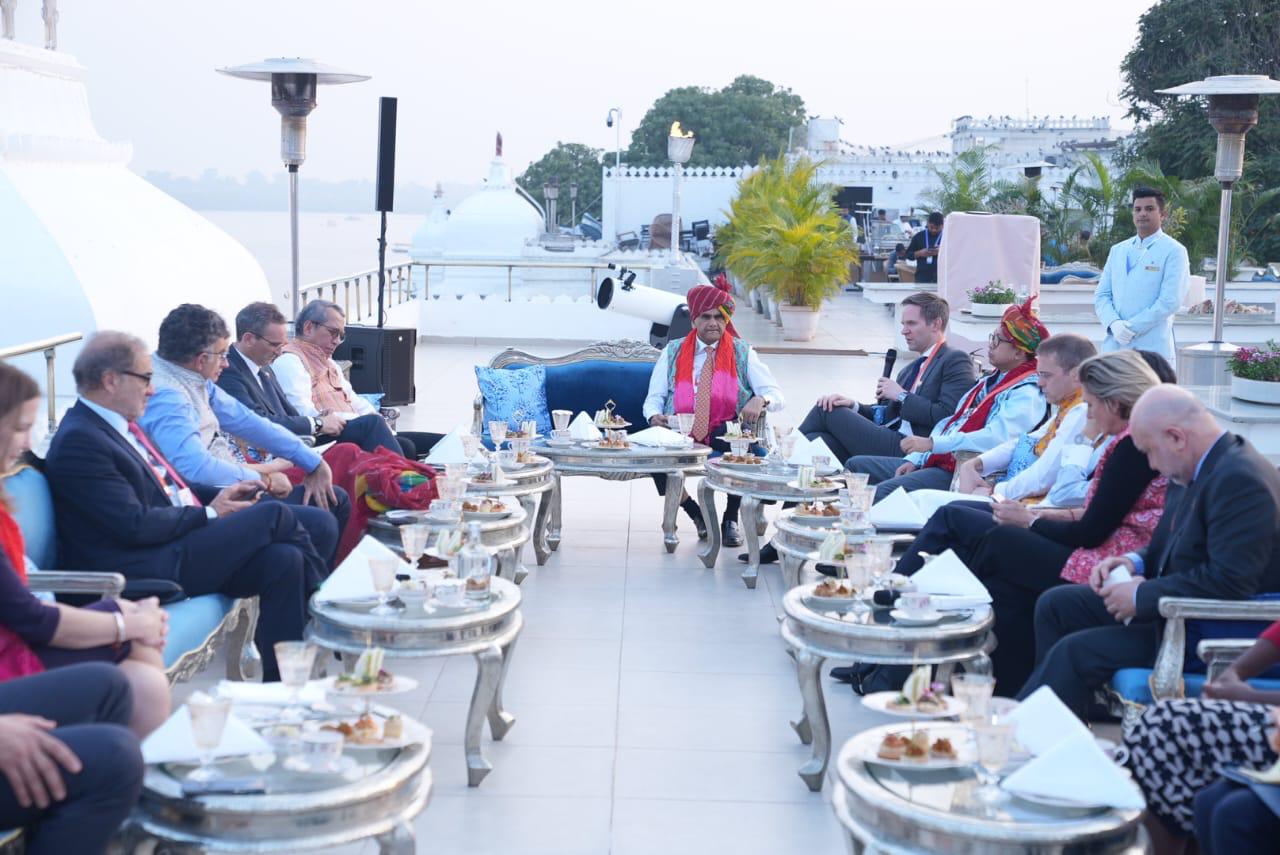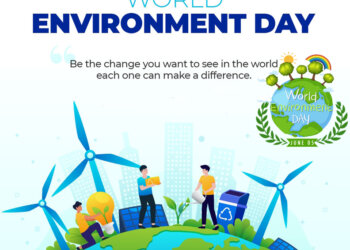The 1st Sherpa Meeting of India’s G20 Presidency, scheduled from 4 to 7 December 2022, welcomed international Sherpas, their delegations, and heads of invited International Organisations (IOs) to Udaipur yesterday. The first day of the meeting saw various activities, interactions, and events including an informal media interaction, a side event on ‘Sustainable Development Goals: Transforming Lives at the Midpoint of the 2030 Agenda’, an exhibit of Jal Sanjhi art, a networking event for delegates, a Desert Music Symphony, and various cultural performances through the day.
Today, 5 December, marked the beginning of the substantive discussions on five key focus areas of India’s G20 Presidency. In addition to the first two sessions on ‘Technological Transformation’ and ‘Green Development and Lifestyle for Environment (LIFE)’, a dialogue on ‘Global & Regional Economy: Prospects & Challenges’ and an informal ‘Chai pe Charcha’ among G20 member countries was also held.
Negotiations of the 1st Sherpa Meeting were initiated by India’s G20 Sherpa, Shri Amitabh Kant, through an overview of India’s G20 priorities across our 13 Working Groups. The Sherpa also highlighted India’s duty as the de facto voice of the Global South, using its role as G20 Chair to forge win-win collaborations between developed and developing nations. Shri Ajay Seth, Secretary, Department of Economic Affairs, Ministry of Finance, then proceeded to outline key economic challenges facing the world today, which require boosting the collective capacity of G20 countries to respond as one.
This was followed by Session 1 on Technological Transformation, with the participation of working groups on Digital Economy, Health, and Education. Delegates discussed present challenges to accelerating digitalisation across different sectors in their countries. Further, delegates from G20 countries, guest invitees, and IOs, shared key interventions to better leverage the power of technology through multiple pathways. The importance of cyber security, inclusivity in expanding access to technological services and infrastructure, and digital skilling, among other themes, were highlighted in the discussions.
Session 2 on ‘Green Development and Lifestyle for Environment (LiFE’ followed, with the focus shifting to effective strategies to collectively combat climate change. The need to facilitate just green and energy transitions was platformed, with India’s G20 Sherpa highlighting the necessity of galvanising collective action towards achieving the Sustainable Development Goals (SDGs). The Development (DWG), Energy Transitions (ETWG), Climate Sustainability Working Group (CSWG), and Disaster Risk Resilience and Reduction (DRRWG) working groups participated in this session. Countries appreciated India’s ‘LiFE’ initiative and extended support and commitment to take the agenda to fruition.
A dialogue on “Global & Regional Economy: Prospects & Challenges” was held next. Mr. Luis Breuer , IMF Resident Representative in India, and Ms. Kristina Kostial, Deputy Director of Strategy and Policy Department, IMF, engaged in a thought-provoking discussion that called to attention the most pressing global economic challenges of the day. The dialogue put forth key ideas for the world to tackle major concerns and emerge more resilient to economic vagaries.

Additionally, a discussion over high tea in the evening – ‘Chai pe Charcha’ , was held to foster deeper interpersonal relationships and strengthen ties between G20 member countries.
During an excursion to the historic Manek Chowk in Udaipur, G20 Sherpas were provided traditional Indian jackets, Safas/Turban and stoles to further enrich their authentic cultural experience of Rajasthan. Day 2 concluded with Ratri Bhoj par Samvaad (Conversation over Dinner) at the spectacular venue – Jagmandir, Udaipur.
HMT5.jpeg)
India continues to provide the best of our hospitality to the G20 Sherpas and the delegations. Through a range of cultural activities, visits to historic sites and scenic locations, showcasing Rajasthani art and craft, India aims to bring forth a unique experience and a glimpse into our rich history and traditions. Udaipur, a city known for its white marble architecture and beautiful lakes, is offering the delegations a remarkable and memorable visit.
Source:PIB







 Finance
Finance







